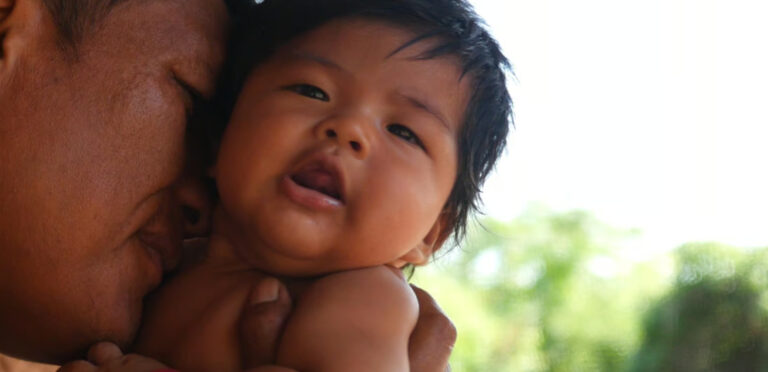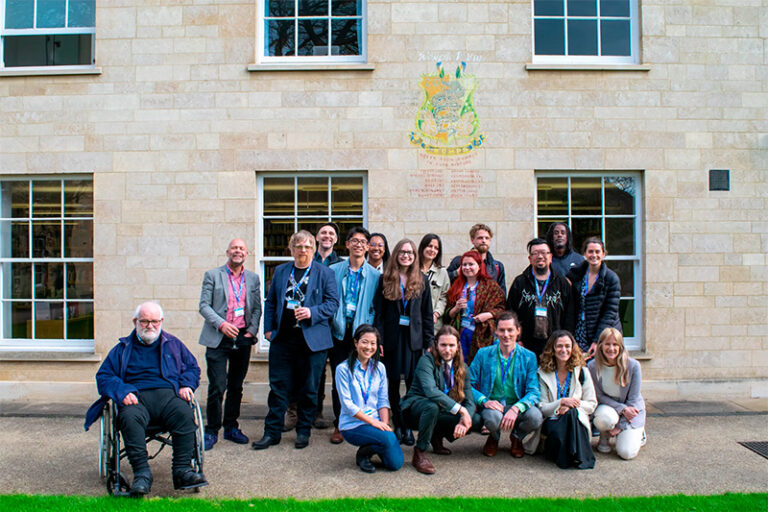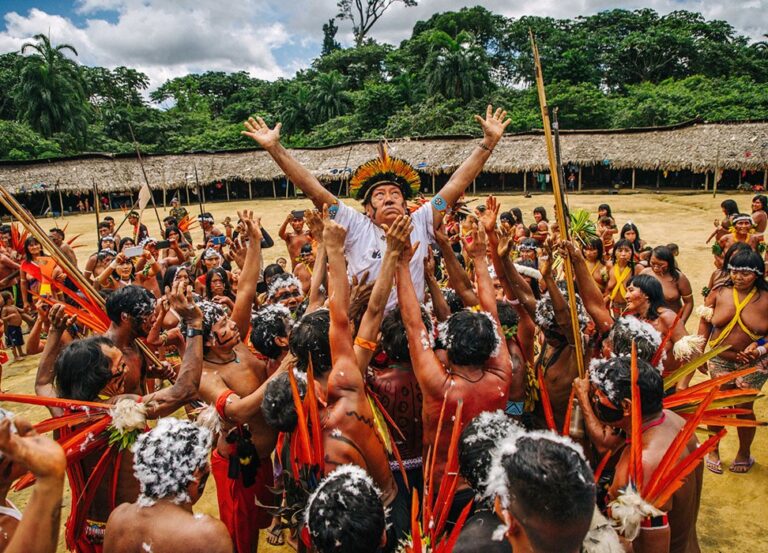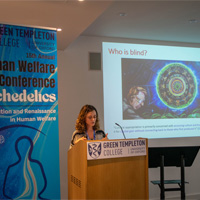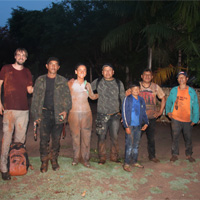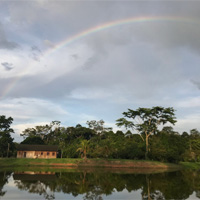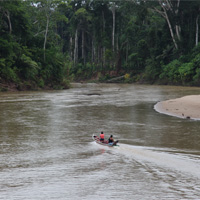“Brazil is Back!”, said president-elect Luiz Inácio Lula da Silva at COP 27 in Egypt. Although I am truly happy with the result of the Brazilian elections – the main reason for hope during COP 27 – I have been struggling with what to say about it. I don’t want to be a downer, but urgent action on the climate crisis is needed and conferences like COP might not be the way ahead.
It has been 27 years since the first COP. Could we say we have fulfilled expectations? I don’t think so. Yes, transformations take time, but we have seen during the COVID-19 pandemic that we can and should make radical changes in record time. So why not with climate change? Is it too far away in the future? Have we convinced ourselves there’s no need for urgency? Or are we distracted by the belief that we are doing something when we go to COPs?
COPs are not working anymore. We have been blowing through the threshold goals from all the previous COP meetings with increasing speed. Very few of the past plans have been met. COPs do not show representation either. I used to be very excited every time an African country would host a COP. My last one in Africa was Durban – COP 17, exactly one decade ago. The continent where we, as a species, originated. The best one to remind us about our place on this planet.
I was more hopeful then.
This photo is certainly the portrait of COP27:
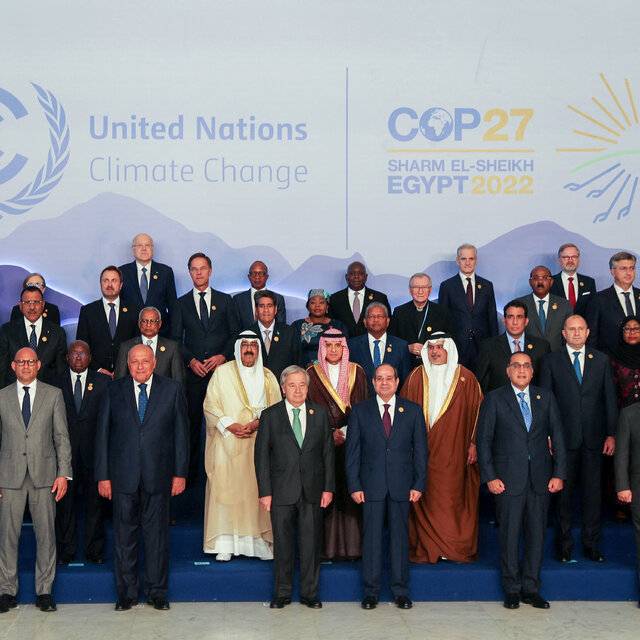
So many people are missing. Women, Indigenous leaders, local and rural communities most affected by climate change. It captures pretty well my gut reaction regarding COP27. How can we work together if the majority of the world isn’t represented at the decision table?
It’s also not fast enough. We have had 27 COPs! Is it even a genuine effort? “The Coca-Cola Company” sponsored COP this year. They are the largest plastic polluter (made from fossil fuels) in the world, and one of the most significant perpetrators of water theft. A conference for climate change sponsored by one of the world’s top polluters being held in a nation with an oppressive regime. That should tell us a lot.
I have been very skeptical about our capacity to act after these meetings. After I completed my Ph.D. (back in 2015) and went to COP 21 in Paris, the only thing that gave me hope was meeting and working with Indigenous people. Learning from them. It was clear to me: we need local and traditional science engagement, action, and protagonism. Why haven’t we allowed space, time, and investments for it? Climate change mitigation needs to be a grassroots effort. The change is already happening for Indigenous peoples. They have been leading a massive transformation – the spiritual transformation, as they call it.
We insist too much and for too long on being distracted from what we really need to do. Distractions, like the COPs, only limit our capacity for invention, creation, existence, and freedom. Aren’t we always updating that old disposition of ours for meeting, for exchanging stories, for discoursing about the future? We can’t say we are progressing when more than 70% of humanity is alienated from the basic exercise of being. If we forget our deep links to our ancestral memory – the roots that support who we are, our real identity (not our UNFCCC badge!) – we may find ourselves in a sinking titanic.
COP 27 (like many of the previous ones) was a disorientating circus of extremes: pompous self-importance mixed with genuine warmth; grandiose set-piece formal events in one side, under-stated spontaneous knowledge sharing in other. The distractions, time-wasters and green-washers were evident. Maybe we would be better off if all the money, energy, time, and effort were actually spent on planting trees, or helping the people who are already suffering from climate change. The absence of action during the subsequent year after a COP always bothered me. The absence of intelligence and sensitivity. It is not about exhibiting, Christmas wishes. Action is fundamental. If COP attendees could act as much as they talk, the conference would have a profound and lasting impact. No one can deny with a straight face that we can do much better.
Despite all, I felt an immense need to be at this COP. After so many years without attending, I wanted to engage with the debates, meet old friends, get more involved with the negotiations. I used to believe that no other forum could foster cross-sector collaborations in the way these meetings could. I’ve been to many of them. From COPs to World Bank, from Rio (92 and +20) to many other gatherings where government ministers from the global South and North discuss solutions alongside business, finance, NGOs and local community representatives. Systemic changes need radical collaboration. But after all those years traveling (I do miss that too) I have realized that organizing a massive event already feels like a major achievement, but the process outshines the outcomes. A circus? Certainly, the spectacle comes first.
We can’t lead the change needed in the face of the enormity of the climate crisis without optimism, tough. Perhaps the change will be led by the youth. Their protests during these conferences are much-needed reminders of what loss and damage actually mean. A well-coordinated chant for a better future. Have I lost faith in COPs completely? I find it very hard to get either excited or enraged about them. They are still a great part of my history. The start of my passion for working in the climate sector. I remember, back in 2004, writing my bachelor’s monography about the Kyoto Protocol and wondering how powerful experiencing a COP must be. Now I know for sure that the last thing we need is more pledges. It’s time for something new.
All that hot air from COP27 is adding to global warming and climate change. What will it take to make us collectively tired of this spectacle? What was intended to be a serious annual negotiation has become a sophisticated carnival of slick events and branding. It’s hard not to think of Africa. They are largely seen as a continent filled with challenges, but the more challenges you have, the more creative and wise you get. Africa should be seen as a place of talent, a place of skills, a place of innovation. The climate crisis is not only a private sector and government problem. Everybody that uses a product generated from deforestation, for example, is also responsible. Your iPhone, the food you eat, the clothes you wear, if you flew over there… you are responsible. If we don’t all step up and take responsibility, the climate crisis will not be solved.
Coming back to the Brazilian hope, Lula exclaimed to a rapturous crowd that “Brazil is back!”. Promising to restore the Amazon forest, he was acclaimed by many Brazilians. They chanted: “ole ole ole ola, Lula Lula.” He was certainly one of the superstars of the spectacle.
“We must stop this rush to the abyss. There is no climate security for the world without a protected Amazon,” Lula said. He affirmed that climate change would have the highest priority in his government.
While there is no doubt Brazil’s president is full of ambition (and capacity to act) when it comes to tackling climate change, the challenge will be materializing all these promises. Brazil is deeply divided over Lula’s return to the presidency. His job to unite the country won’t be easy. However, like a phoenix rising from the ashes, if anyone can turn around Brazil’s approach to climate change, it is certainly him. It will be a difficult task. Deforestation reached record highs under President Bolsonaro’s government. Nevertheless, I am confident he knows how.
He also requested for Brazil to be the host of COP30, in 2025. “It should be in the Amazon region,” he remarked.
If we manage to have an indigenous-led COP, prioritizing local communities, where people could hear the voices of the forest (and its many beings), maybe then I’ll renew my hopes about the COPs.




